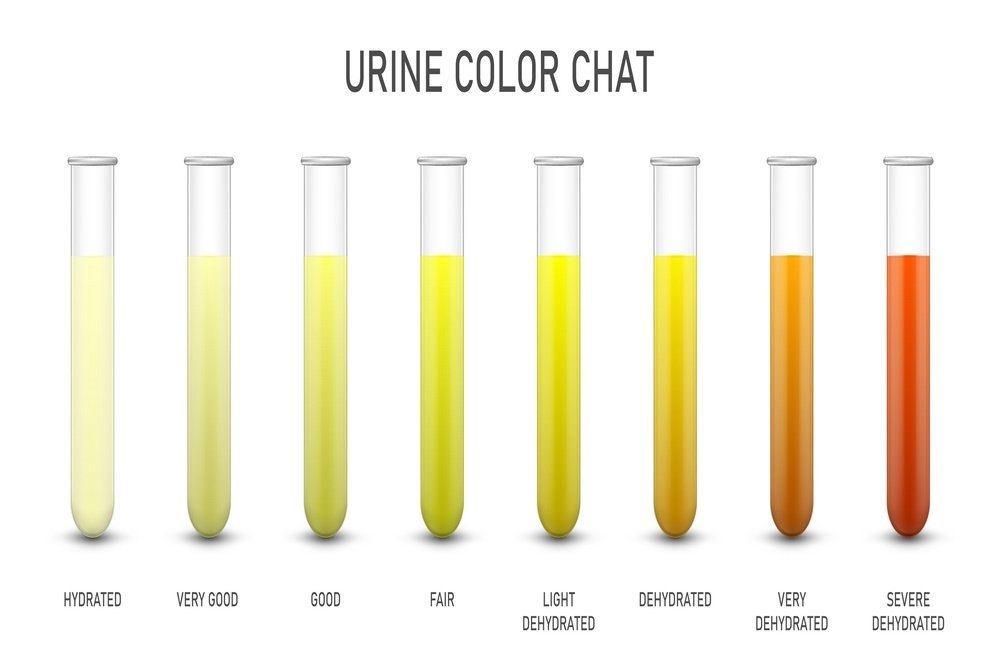Tests

Dehydration is not a disease in itself rather, it can be a clinical manifestation of several chronic illnesses, infections and malfunctioning organ systems. Dehydration is mainly diagnosed by assessment of signs and symptoms. In severe dehydration, however, lab tests are required to assess the extent of dehydration. [8]
Physical examination:
-
- Skin tenting: in a simple test, skin on the limbs or abdomen is pinched and released. The resultant time for the skin to reach its normal stretched position is observed. Dehydrated skin has lost its elastic ability and it forms a tent like shape before returning to its normal position.
- Dry mouth/lips: the physician can quickly assess dehydration status by checking the dryness of lips and mouth. If these symptoms are also coupled with bad breath, it can be a strong indication of dehydration.
- Urine: urine sample can be tested for its color, consistency, volume and smell.
- Eyes: dry and sunken eyes are an indication of dehydration.
- Consciousness: the physician can assess dehydration scale by checking for cognitive functioning in the patient. Headache and dizziness with irritability can be signs of dehydration.
- Laboratory tests
- Blood analysis: blood is checked for its pressure. Moreover, a blood sample can be evaluated for an estimate of electrolyte imbalance. Blood analysis can also help analyze kidney function. Complete blood count gives the value of the hematocrit, which is raised in dehydration.
- Urinalysis A thorough report on urine contents and their percentage can help assess the function of the urinary system.
- Hormones: antidiuretic hormone (ADH) and cortisol are checked in rare cases as they control water metabolism. ADH hypo-secretion, or insensitivity can lead to diabetes insipidus. It is characterized by kidneys inability to concentrate urine and conserve water.
- Stool and urine samples are tested for bacterial and parasitic infections in patients with diarrhea or vomiting.
